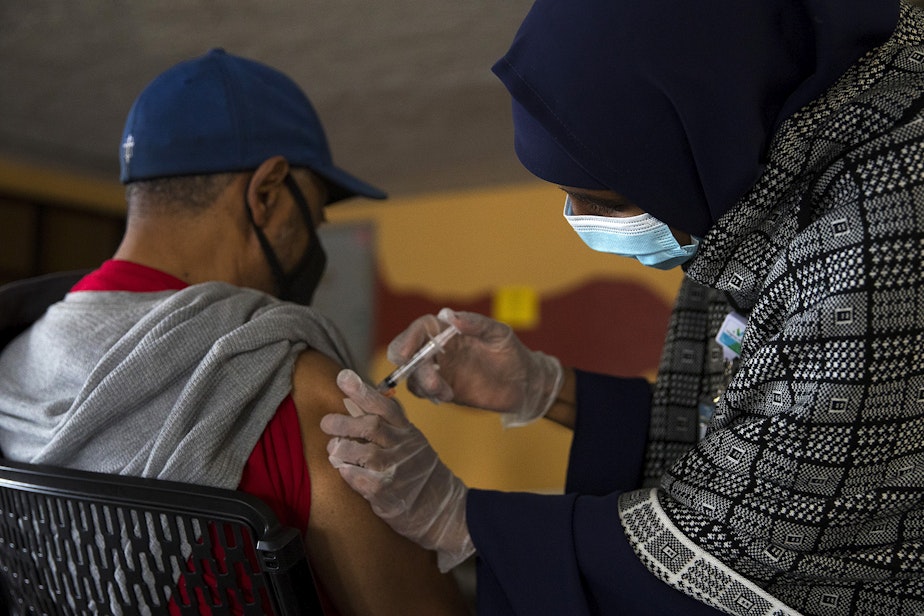Getting your second Covid-19 vaccination late? That's okay — here's why

Many Washingtonians who were scheduled to get their second vaccine doses this week will now be getting those shots a little later.
That’s because snowstorms across the country held up delivery of most of Washington state's vaccine supply — almost all of which was earmarked for second doses.
Even before this week, many people struggled to schedule their second dose appointments within the recommended window.
Sometimes, a provider where a patient got their first dose wouldn’t have any second-dose appointments available. And many providers won’t schedule second doses for people they didn’t provide with the initial dose.
But experts say: Don’t worry. It’s okay to get your second dose a little bit late.
There’s nothing magical about 21 or 28 days. The key is to give your immune system enough time to react to the first dose, and then mount a response to the second dose.
In fact, some experts say a longer interval might work even better.
Sponsored
King County public health officer Jeff Duchin said at a press conference back in January that giving the second dose early is a bigger problem than giving it a little bit late.
“It’s not a problem to be a little bit late — a few days, a few weeks even,” he said. “But we do want to get those second doses in as close as possible to their recommended time interval.”
The reason for that is researchers don’t know exactly how long the protection from the first dose lasts; it could taper off at some point.
Washington’s Department of Health says it’s okay to schedule second doses of either the Moderna or the Pfizer vaccines up to six weeks after the first dose.




